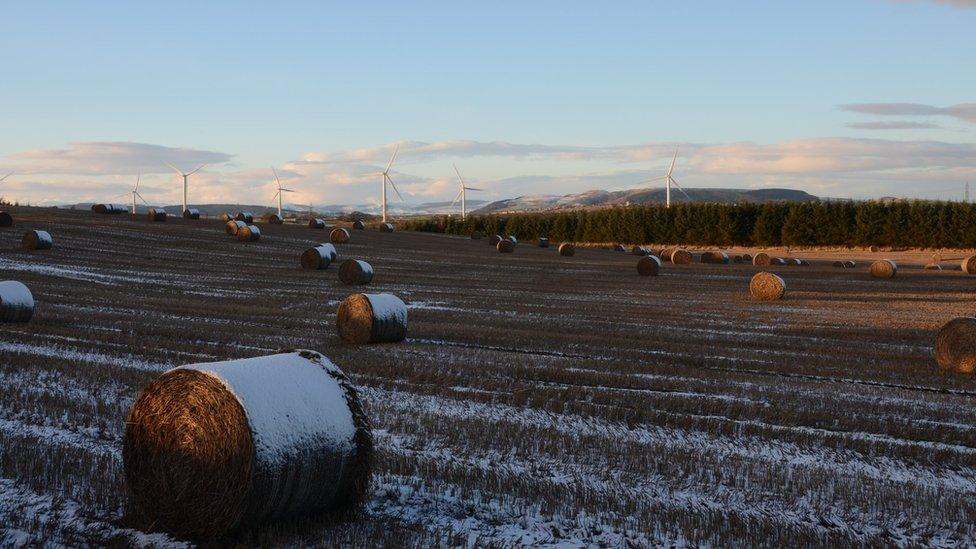Farmland sales suffer over subsidy doubts
- Published

RICS said change could present an opportunity to capitalise on Scotland's natural resources, heritage and landscape
Farmland sales are continuing to suffer as a result of uncertainty about the future of subsidies, according to surveyors.
The Royal Institute of Chartered Surveyors (RICS) said survey evidence suggested there had been more than two years of falling land prices.
It said this had also been partly caused by low commodity prices.
The evidence also suggested there were expectations of the declining market to continue for at least another year.
RICS called on the government to "rural-proof" policy, to protect the farming and forestry sectors against change.
Although the price slide began long before the European referendum, the survey evidence pointed to Brexit as a key source of uncertainty around land purchase.
'Little belief'
The UK government has promised to sustain the Common Agriculture Policy payments one year after it plans to withdraw from the European Union, which is in 2019.
RICS called on that pledge to be extended.
Hew Edgar, of RICS in Scotland, said: "There is currently little belief amongst those likely to be impacted that current payment levels will be maintained post 2020.
"Furthermore, any loss of access to the single market and restrictions on freedom of movement of labour will also impact on land-based businesses.
"Imposition of tariffs, for example, on Scotland's beef and lamb exports will affect profitability of the sector."
However, Mr Edgar said that despite the uncertainty ahead, change also presented an opportunity to capitalise on Scotland's natural resources, heritage and landscape.
He said a targeted rural development policy to assist Scotland's land-based businesses to become multi-functional enterprises would be essential post Brexit.